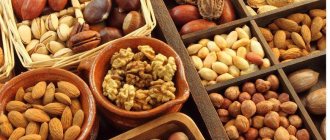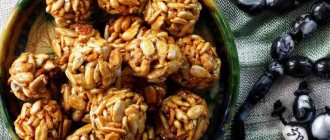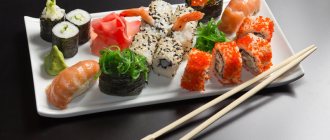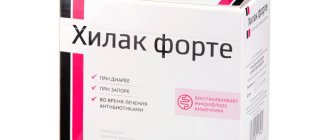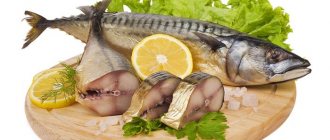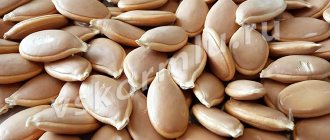Composition and beneficial properties of pear
During pregnancy, many expectant mothers are faced with the fact that some of their usual products may be prohibited due to an allergic reaction or due to their chemical composition. But there are exceptions, for example, it is useful to eat pear during pregnancy due to its low allergenicity. Is it possible to introduce this fruit into your diet during lactation, and what benefits does it bring in this case? Let's figure it out.
Fresh pears in a plate
The chemical composition of the fruit looks like this:
- vitamins: A, group B (except B12), C, E, K, PP;
- minerals: zinc, chromium, molybdenum, copper, manganese, cobalt, iron, sodium, phosphorus, silicon, calcium, potassium;
- organic acids;
- alimentary fiber;
- water;
- ash;
- glucose;
- sucrose;
- fructose;
- saturated fatty acids;
- polyunsaturated fatty acids Omega-3 and Omega-6.
Calorie content per 100 g of product is 47 kcal. Share of BZHU in calorie content:
- proteins - 4% (0 g);
- fats - 6% (0 g);
- carbohydrates - 91% (10 g).
Such a rich chemical composition has the following benefits for the body of a nursing woman:
- strengthening the immune system, fighting infections and inflammatory diseases;
- elimination of postpartum depression;
- normalization of metabolic processes in the body;
- positive effect on the functioning of the kidneys, liver, and gastrointestinal tract;
- increasing the elasticity of blood vessels;
- folic acid is important for hematopoietic processes;
- prevention of the development of iron deficiency anemia;
- normalization of the heart muscle;
- participation in cell regeneration, thereby reducing the level of bad cholesterol;
- improvement of intestinal motility;
- improving the condition of hair, nails and skin.
Pears contain more fructose than glucose. That is why pears are first on the menu for people who have problems with the pancreas. It is also useful for people with diabetes and obesity to eat pears, but in moderation.
Contraindications and restrictions on the use of pears during breastfeeding
Pears should be limited to people with diseases:
- gastrointestinal tract;
- liver;
- nervous system.
The large amount of fiber in pears can irritate the mucous membranes and increase their peristalsis. However, when eating baked fruit, these phenomena occur much less frequently.
As for the likelihood of allergic reactions, pears practically do not cause them. Moreover, green fruits are considered completely hypoallergenic. The only exceptions are cases of individual intolerance to the fruit.
Is it possible to eat pear while breastfeeding?
Many breastfeeding women wonder whether it is possible to eat apples and pears while breastfeeding. Despite the undoubted benefits of pears, you need to figure out from what month after childbirth you can include them in your diet.
You should also remember that you cannot simultaneously introduce several foods into your diet, otherwise it will be difficult to understand which of them negatively affects the child’s body.
In the first month
When breastfeeding a newborn, you should adhere to a certain diet. This is due to the fact that the baby’s digestive system is not yet strong enough, so eating certain foods by a nursing woman can cause colic, flatulence, diarrhea or bloating in the baby.
Experts do not recommend eating pears during lactation 1 month after birth in order to avoid possible side effects in the baby.
In the second month
In the 2nd month after birth, if you really want to, you can eat a small amount of pear (no more than 50 g). It is important to monitor the baby’s reaction. If there are signs of an allergic reaction, the child becomes cranky or suddenly has diarrhea.
If after eating a pear there are no changes in the baby’s behavior and well-being, you can slightly increase the amount of fruit consumed. But you shouldn't abuse it.
In the third month
At 3 months, it is safest to introduce pears into your diet. By this time, the baby’s digestive system has become sufficiently strong, so the risk of side effects is minimal. At the same time, if after eating the fruit there are problems in the baby’s well-being or diarrhea, then the pear should be discarded.
What are the benefits of pears?
The main thing worth noting is the high nutritional value, along with the low calorie content of delicious fruits. For your information, 100 grams of pear pulp contains only 42 calories.
It owes its nutritional value to the cellulose it contains. In addition, the pear is known for its rich complex of vitamins and minerals.
A number of useful elements included in its composition are listed below, and their effect on the human body is described:
- Essential oils. They help strengthen the immune system and fight infections and inflammatory diseases, and also help overcome depression.
- Organic acids. They are responsible for regulating metabolic processes in the body and have a positive effect on the functioning of the liver, kidneys and gastrointestinal tract. Plus they have an antimicrobial effect on pathogenic microflora, which is responsible for the processes of decay in the large intestine.
- Ascorbic acid. Thanks to it, blood vessels become more elastic.
- Folic acid. It is indispensable in the processes of hematopoiesis.
- Iron. Takes part in the synthesis of red blood cells. Thanks to iron, a person gets tired less and his appetite improves. In addition, it promotes faster wound healing and reduced sensitivity to cold.
- Potassium ions. They normalize the functioning of the heart muscle, participate in cell regeneration and, thanks to them, reduce the level of so-called bad cholesterol in the blood.
Other beneficial substances contained in pears:
- Fructose. Its content in the fruit is much higher than the amount of glucose, and it is for this reason that pears are first on the menu for people with problems with the pancreas, and they are also recommended for those who suffer from diabetes or obesity.
- Cellulose. Another useful element that the skin of the fresh fruit is rich in. Improves intestinal motility, in other words, wave-like contraction of the walls, and is an excellent remedy for the prevention of gallstone disease.
- Sulfur. Responsible for healthy and strong hair, skin and bones.
- Cobalt. Interesting fact: 100 grams of pulp contains the daily requirement of cobalt. It plays an important role in the normal functioning of the thyroid gland and the production of hemoglobin. It makes it easier for the body to absorb iron.
Naturally, this is not the entire list of useful elements that a pear can boast of. However, even these listed points are quite enough to draw conclusions about the enormous value of such fruit in the human diet.
How to choose pears
To maximize the benefits of eating the fruit, you need to learn how to choose the right pears:
- It is recommended to eat fruits only when they are in season. If possible, it is advisable to use those that grow on your own plot or are sold by summer residents.
- Pears can be bought at the market and in stores. But in this case, there is a high probability that they will be treated with special substances for better preservation, especially if the fruit is sold out of season.
- You can include only ripe fruits in your diet, and preference should be given to green fruits.
Impact on the body of mother and child
In the first three months of life, the baby's intestines are especially sensitive, and the child is bothered by flatulence and colic. Pears are hypoallergenic foods, but their high fiber content causes increased gas formation. Doctors recommend trying baked apples first, then fresh ones, and introducing pears into the diet no earlier than 3 months after birth.
it’s not worth it, after three months you should eat it, but it’s too early, I just ate it once while Temka was still little, then he suffered for three days...
Sasha
https://www.baby.ru/blogs/post/25165136–10970130/
I ate everything, just not all at once = first apples, pears, then banana. Then gradually citrus fruits and pomegranates and everything I wanted!
Twin
https://www.u-mama.ru/forum/kids/0–1/289581/index.html
ok, I'm eating. The main thing is to cut off the peel, it contains the poison
Nastasya86
https://www.baby.ru/blogs/post/25165136–10970130/
Beneficial features
The pear contains vital vitamins and minerals necessary for the full development of the child and the speedy recovery of the mother after childbirth. Let us list the main beneficial qualities of pears:
- Improves blood composition due to the presence of minerals - iron, silicon, cobalt and others.
- Helps the functioning of the heart. Potassium strengthens the heart muscle, silicon and manganese take care of blood vessels.
- Normalizes digestion. Dietary fiber is necessary for the quality of the gastrointestinal tract and helps cope with constipation after childbirth. Pears are also recommended for heartburn, gastritis, and liver diseases.
- Improves mood. Essential oils that give pears a pleasant aroma calm the nervous system.
- Strengthens the immune system. A rich set of vitamins and minerals helps maintain the health of the entire body as a whole.
- Has a diuretic effect. Pears contain a lot of liquid, and organic acids help remove harmful substances from the body.
In terms of vitamin content, pears are not inferior to many other fruits and berries
Side effects
Due to its high fiber content, pears can increase colic in newborns and cause increased gas formation and bloating. There is a possibility of individual intolerance to the product. The risk of allergies is minimal, and if the mother ate pears during pregnancy, most likely the baby will not have problems in this regard. However, imported pears may be treated with chemicals to improve appearance and increase shelf life. These substances may cause allergies.
It is also known that in some cases pears have a strengthening effect on the intestines. As a rule, this happens when eating hard or unripe fruits containing a large amount of tannins. Pears with loose flesh that “dissolve” in the mouth, on the contrary, can have a laxative effect.
Rules for eating fruit during breastfeeding
Despite the low likelihood of allergies and the benefits of pears for mother and baby, it is recommended to take the following precautions during lactation:
- The optimal time to introduce pears into the diet is 3 months after birth.
- You can try a small piece of pear for the first time. Observe your baby's reaction to a new product. If there are no signs of allergies or digestive problems within two days, gradually increase the dosage of the product to the daily norm - 2 pcs. in a day.
- If a rash or redness of the baby's skin appears, exclude the product from the diet for several weeks.
- Start with pre-cooked pears . Baked or compoted pears contain less coarse fiber and are easier to digest.
- Don't eat pears on an empty stomach. The optimal period for treating pears is between meals.
- Do not drink the pear with water - this will increase gas formation in the intestines.
- Do not eat pears after eating food that is difficult to digest (meat, mushrooms).
- Wash the fruit thoroughly, and if the pear was bought in a store out of season, remove the skin.
How to eat pears correctly
To minimize the likelihood of developing complications and side effects from eating pears during breastfeeding, it is important to adhere to the following rules:
- You should not eat unripe or unripe pears, as they can lead to diarrhea and poor health.
- Pears should only be eaten when they are in season. In winter, they should be abandoned. But there is one exception - if you plan to eat a winter pear variety that is picked in advance and ripens indoors, then such fruits are allowed.
- Preference should be given to green varieties, but the pears must be ripe.
- Before eating the fruit, it must be thoroughly washed and then doused with boiling water.
Despite these recommendations, experts still advise breastfeeding women to eat baked peeled pears, dried fruits, or cook compotes:
- After heat treatment, baked fruits retain almost all the same beneficial properties as fresh pears.
- Compote made from fresh or dried fruits is useful to take if you have constipation. But in this case, you must refrain from eating dried and dried fruits.
- If you don’t want to eat fresh fruits or drink pear compote, then you can use jam or preserves based on this fruit, which are prepared at home and not purchased in a store.
Beautiful pears
How to properly consume baked pear during lactation
You can start eating baked pears 3 to 4 weeks after the baby is born. The first meal should be only a small piece of baked pear.
In the absence of negative reactions, you can gradually increase this amount to 1 - 2 fruits per day.
It is important to follow all the necessary recommendations for consuming this dessert:
- Fruits should be selected carefully. Pears must be in season and locally grown.
- Pears rarely cause allergies, but green varieties of pears are the safest.
- Pears must be thoroughly washed before baking.
- It is advisable not to eat the peel. It needs to be removed.
- You cannot eat such a pear on an empty stomach. It must be eaten 20 - 30 minutes after eating.
- Do not take it with water or other liquid.
Features of baking pears during hot water
There are special secrets for successfully baking pears:
- For baking, it is preferable to use unripe fruits. Those that are too soft tend to “spread” when baked.
- Damaged fruits, moldy or wormy, should also not be baked.
- Pears that are too hard can be cooked in milk. For this purpose, pour a small amount of milk into the bottom of the pan. Pears baked this way will be soft and juicy.
- Don't sugar the dish too much. The fruit itself is quite sweet, so it does not require additional sugar. If the selected variety is too sour, you can add a small amount of honey.
- You can avoid darkening of baked fruits by using lemon juice, which you can lightly sprinkle on the pears.
Contraindications
Can eating pear harm a nursing woman? Yes, in some cases this is possible.
For example, the fiber contained in the fruit promotes self-cleaning of the body. At the same time, precisely because of the fiber, many recommend that a nursing woman remove pears from her diet, since insoluble dietary fiber can lead to increased gas formation in a newborn.
You should also not eat fruit if you have an allergic reaction to it, but this happens extremely rarely. To protect yourself and your baby, it is recommended to consume baked pears, compotes, jams and fruit-based preserves. At the same time, you should remember about moderation; the amount of fresh fruit should not exceed 300 g.
In other cases, it is advisable to consult a specialist.
Compote
In the first months after the birth of a baby, a nursing mother needs a balanced diet, as well as large volumes of fluid - this helps the lymph to circulate better, thereby producing the required amount of milk.
Pear compote is another option for a source of liquid; it retains many of the beneficial trace elements of the pear. Unlike the fetus, this compote can be drunk from the first month of feeding . You can prepare a drink from both fresh fruits and dried fruits. When preparing compotes for nursing mothers, it is better not to add sugar.
Recipes
Below are recipes for pear-based dishes that can and are healthy for nursing women to eat.
Baked pears in the oven
You will need:
- pears - 4 pcs;
- lemon juice - 1 tbsp;
- water - 2 tbsp;
- sugar - 50 g;
- vanilla - 2 pods;
- butter - 2 tbsp.
How to cook:
- Preheat the oven to 190 degrees.
- Use a thin knife to cut the vanilla pods, then remove the seeds and cut it into pieces.
- Mix sugar and vanilla in a bowl.
- Peel the pears and then cut out the core.
- Take a baking sheet, cover it with baking paper, place the pears on top.
- Place a piece of butter in the middle of each pear and sprinkle the sugar and vanilla mixture on top.
- Place the baking sheet in the preheated oven for 25-30 minutes. Then take out the baking sheet, turn the pears over to the other side, pour over the caramel made from the vanilla-sugar mixture. Place back in the oven for 15-20 minutes.
- After the specified time, remove the baking sheet. If the pears are soft, let them cool slightly, after which you can safely enjoy the delicious dish.
Pear compote for the winter
You will need:
- pears - 2 pcs;
- water - 2.5 l;
- orange - 2 slices;
- sugar - 0.3 kg;
- citric acid - ½ tsp.
How to cook:
- Wash the pears, cut out the cores, and then cut the fruit into 4 parts.
- Take sterilized jars and fill them about ⅓ full with pears.
- Put the water to boil, then pour boiling water over the fruits and leave for 10 minutes. Drain the water back into the pan.
- Add sugar, oranges, citric acid to the jar.
- Heat the water again, then pour the boiling water into the jars and seal.
Pear jam
Ingredients:
- pears - 1 kg;
- sugar - 1.2 kg;
- citric acid - 1 tsp;
- water - 250 ml.
How to cook:
- Pour sugar into a saucepan, add water, place the container on the stove and cook the syrup.
- Wash the pears, remove the core and cut them into slices.
- Add citric acid to the boiling syrup, stir, then add the chopped pears.
- Wait until the jam boils, remove the foam and then cook for about 30 minutes.
- After the jam has cooled slightly, distribute it into sterilized jars and seal.
Recipes for nursing mothers with pears
Several popular recipes allow you to prepare healthy dishes based on pear fruits while breastfeeding. Cooking takes little time, but the result is very tasty.
Compote of pears and apples
Pear and apple compote perfectly quenches thirst and refreshes, but does not cause negative reactions in mother and child during breastfeeding.
They do it like this:
- fresh pears and apples, 250 g each, washed, peeled and cut into slices;
- Place 2 liters of water on the stove, and when it boils, add fruit and 100 g of granulated sugar;
- Boil pears and apples until the slices are completely soft.
Only 1 pinch of citric acid is added to the finished compote, which improves the taste and benefits of the drink.
Cheese salad with pear
A light and healthy salad will especially appeal to women interested in healthy eating and weight loss at the same time. The salad is prepared according to the following recipe:
- 1 peeled pear fruit, cut into small thin slices;
- soak briefly in cold water, and then cut 100 g of cheese into cubes;
- Mix fruit slices and cheese, then season the salad with 1 small spoon of olive oil or your favorite syrup.
If desired, just before eating, you can sprinkle the dish with chopped nuts in the amount of 1 large spoon and add a few drops of lemon juice.
Pear salad option
Chicken baked in the oven with pear
With pear pulp you can prepare a hearty and healthy dish while breastfeeding - oven-baked chicken. The recipe looks like this:
- 4 pieces of chicken fillet, washed and peeled;
- 3 ripe pear fruits, peeled and cut into small pieces;
- prepare the sauce for baking - add the same amount of sunflower oil, a little salt and a pinch of citric acid to 2 large spoons of soy sauce;
- the chicken is coated with sauce and left to marinate for a while;
- line the baking sheet with foil, place chicken fillet and pear slices on it, and then cover with foil on top;
- The dish is placed in the oven at a temperature of about 200 °C.
After 45 minutes, remove the baking sheet, open the foil and put the chicken in the oven for some more time so that it browns but does not burn. Check readiness periodically with a fork or wooden toothpick. When the chicken with pear pieces acquires a pleasant color and can be easily pierced, remove the dish from the oven.
Chicken baked with pear slices
Pear puree
Simple pear puree has a pleasant taste; it can be prepared very quickly and easily while breastfeeding. The algorithm looks like this:
- several fresh fruits are peeled, cut into small pieces and baked in the oven until completely softened;
- after this, the pieces are placed in a blender and honey or sugar is added to taste;
- Pear pieces are crushed until smooth and eaten for breakfast or as a light snack.
Advice! Pear puree is suitable for the first feeding of an infant - just prepare the dish in this case without using honey.
Pear puree is good not only for mommy, but also for baby
Baked pear with cottage cheese and vanilla
A popular pear-based recipe for breastfeeding is baked fruit with vanilla and cottage cheese. Prepare the dish as follows:
- 2 pears are washed, the upper part of the fruit is cut off and the cores with seeds are carefully removed from the pears;
- 100 g of cottage cheese are ground with granulated sugar and vanilla, taken to taste;
- The sweet filling is placed inside the pear fruits, covered with the cut off tops and sent to the oven, heated to 180 degrees.
You only need to bake the pear with cottage cheese for 15 minutes, which is enough to get a tasty and healthy dish.
Pear halves with curd filling
Reviews
Below are reviews about eating pears while breastfeeding.
Arina, 28 years old
I ate pears while breastfeeding my newborn. All this led to upset bowel movements in the baby - that’s exactly what the pediatrician explained to me. Therefore, I began to eat pears only after completing the Guard.
Evgeniya, 36 years old
In the second month after giving birth, I ate pears several times. I did not notice any problems with the child’s digestion or well-being. But after eating pears, my stool returned to normal.
Maria, 21 years old
I tried pears for the first time during lactation when the baby was 3 months old. The next day, red spots appeared on my son’s body. The second time I ate a pear was when the child was 4.5 months old. In this case there were no problems. In my opinion, this fruit is best introduced into your diet when the child is 5-6 months old.
Is it possible to eat pear while breastfeeding? Yes, if you remember about moderation and do not introduce it into your diet before the child is 3 months old. It is also important to remember about moderation, and at the first sign of side effects and allergies in your baby, refuse the fruit.
Rules for selection and use
Only fresh, ripe and tasty fruits can bring benefits during breastfeeding. When buying fruit in a store, you need to pay attention to the following points:
- strong pleasant aroma; if the fruit smells unpleasant, you should not buy it because it has spoiled;
- smooth, uniform skin, the fruit should not have dark spots or stale barrels, too dark or pale areas, or damage;
- color - green fruits bring the greatest benefit during breastfeeding.
It is better to purchase fruits from a trusted store - fruits purchased from an unfamiliar seller may contain harmful chemical impurities.
You can often come across the opinion that pears are prohibited for consumption in the first month of a child’s life, and it is better to introduce them into the diet during breastfeeding after 3 months in order to avoid colic in the child. However, most pediatricians argue that colic is caused by the ongoing processes of formation of intestinal microflora and has little dependence on the mother’s diet.
You can add a pear to the list of allowed foods in the first month of a baby’s life, but you need to start eating it with just 2 slices.
When breastfeeding, you should only eat peeled fruit; the peel of the pear contains tannins that have a strengthening effect on the intestines. It is recommended to consume no more than 1 small pear per day. At the same time, you need to eat fruit not every day, but a maximum of three times a week.
It is best to consume pears during breastfeeding in the first month in processed form, after baking or in the form of compote. During heat treatment, the volume of organic acids in the pulp is reduced, so the pear has a milder effect on the baby's body during breastfeeding.
Pear with health benefits
Let's look at what benefits this fruit contains and why it should be included in the diet:
- Plant fiber is a good remedy for constipation.
- Retinol (vitamin A) – 2 mcg per 100 g of fruit pulp – is necessary for bone growth, healthy skin and hair, and normal vision.
- Ascorbic acid (vitamin C) – 5 mg per 100 g – a powerful antioxidant.
- Folic acid (vitamin B9) – 2 mg – protects against megaloblastic anemia and promotes the development of the nervous system in children.
- Microelements: iron, potassium, zinc, iodine, copper, selenium, cobalt, etc.
Benefit
Some useful elements in fresh fruits are unstable to high temperatures, so they are destroyed after heat treatment. But there are exceptions to this rule. For example, the finished jam retains a high concentration of B vitamins and ascorbic acid. Vitamins PP, E, and A are also heat-resistant, so boiled berries retain their antioxidant, rejuvenating, and protective properties.
Expert opinion
Sokolova L. S.
Pediatrician of the highest category
The calorie content of the product directly depends on the amount of sugar added during cooking. The less refined sugar the recipe provides, the more benefits for the nursing mother and baby.
Jam has the following positive effects on a woman’s body:
- recovery after high emotional and physical stress;
- fight against insomnia;
- serotonin eliminates depression, fatigue;
- flavonoids relieve spasms, strengthen blood vessels, stimulate hematopoiesis;
- fiber removes toxins, helps absorb and digest food;
- B vitamins improve brain function and nervous reactions;
- polyphenols have a positive effect on the liver, reduce cholesterol levels (blueberry, strawberry, lingonberry, strawberry jam);
- prevention of tumor formations (apricot, raspberry).
Pediatricians allow eating jam during breastfeeding as a source of vitamins to fortify milk.
The benefits of the product are determined by the norms of use. To eliminate the risks of allergies and endocrine disorders, it is recommended to introduce different types of jam in certain months.
Baked pears
Baked apples with cottage cheese and pears during breastfeeding are allowed to be consumed approximately a month after birth. This dish has a unique taste, and also contains a large amount of vitamins and at the same time is distinguished by its low calorie content.
Ordinary baked pears bring no less benefit. To prepare them you will need:
- pears – 0.5 kg;
- honey - 2 tbsp. l.;
- lemon juice – 1 tsp.
- Peel the pre-washed pears and remove the stems.
- Cut the fruit in half and remove the cores.
- Place on a baking sheet. After this, the pears must be sprinkled with lemon juice and coated with honey.
- Place in a preheated oven at 200 degrees for 20 minutes. The softness of the fruit will signal that the dish is ready.
- Pour the resulting syrup into the pears during baking and place in the oven for another five minutes.
Baked pears during breastfeeding can be consumed both cold and hot.
How to correctly introduce a pear into the menu during breastfeeding
In the first month of a baby’s life, the basis of the diet for a nursing mother is cereals, boiled meat and stewed vegetables. The green apple is considered the most hypoallergenic fruit; it is usually added to the menu first, and the pear second. If a child has allergic reactions in response to his mother eating an apple, then the pear may not be prohibited. For example, pear compote is an excellent remedy for mother’s constipation.
They start eating pears with one slice without peel in the first half of the day. First, the fruit is consumed in heat-treated form, namely:
- baked in the oven or microwave;
- in the form of homemade jam or jam (the less sugar added, the better);
- boiled in compote.
You should gradually increase your daily portion of fruit.
Is it possible to eat a raw pear? This is not an idle question. If there are no difficulties with the condition of the baby’s skin and stool, you need to switch to fresh fruit in pieces, whole or in the form of puree. Most mothers manage to introduce fresh pears into their diet only after the colic period ends: at 3-4 full months of the child.
Like any fresh fruit, pears should not be eaten on an empty stomach when breastfeeding: fruit acids are aggressive to the mucous membrane of the stomach and duodenum. In addition, it is not recommended to drink foods rich in fiber with water: fiber swells faster, and the fermentation reaction begins before the enzymes of the digestive system are activated.
Insidious delusion
There is a myth that people with diabetes can eat sweet fruits without restriction, because they contain fructose, not glucose. This is a very insidious misconception!
From the point of view of biochemical processes, fructose and glucose are processed in the body in exactly the same way, and fructose also requires insulin for disposal. A frivolous attitude towards fruit sugars is very dangerous for endocrinologist patients.
Thus, a pear during breastfeeding is not only permitted, but also a necessary product. By taking precautions, you can treat yourself to a tasty and varied diet. Breastfeeding should be a pleasant and rewarding experience.
How to get rid of stretch marks after childbirth?
